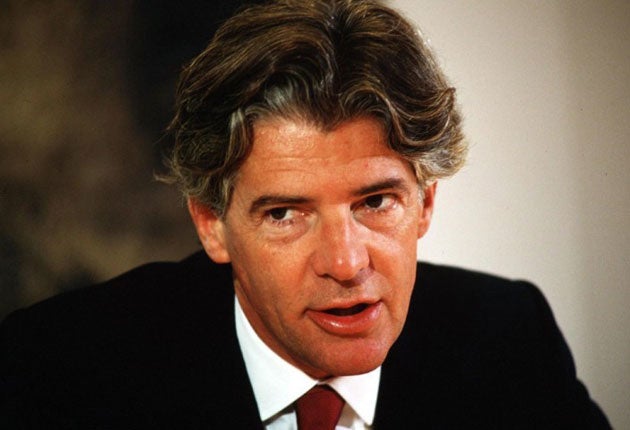Former ITV chief swaps boardroom for consulting couch

Few would disagree that Michael Green knows something of the drama of human existence. He was ousted as chairman of the newly-merged ITV in 2003 in one of the bloodiest shareholder revolts that the City had witnessed in decades.
The Carlton Communications founder's notorious management style ruffled plenty of feathers en-route to becoming one of the biggest media players of his generation. In the end, his humiliating departure from the stage was sweetened by a famously generous – and controversial – corporate pay-off, as pundits, including the BBC's then-business editor Jeff Randall, concluded that the "spectacular ego" of the man who employed a young David Cameron as his PR had led to his downfall.
But what Mr Green did next has surprised both friends and foes alike. Now aged 63, the one-time TV magnate with an estimated personal fortune of £83m is undergoing training as a psychotherapist at London's private Regent's College, having already completed a course in the subject at the world-renowned Tavistock Institute, where he spent two days a week in clinical training in NHS wards in 2007.
Mr Green, the grandson of Jewish refugees who escaped the eastern European pogroms, went on to make his first million aged just 21. He has never spoken publicly about his late-life career shift and was unavailable for comment. No one was available at the college yesterday to confirm his enrollment as a student.
But fellow students reported that he sometimes arrived for sessions in his Rolls-Royce and had even been known to give lifts to other trainees.
Students often undergo psychotherapy themselves as part of their training, as well as holding sessions with patients.
Mr Green finds himself in good company with high-flyers from show business, politics and sport who have also chosen psychotherapy as a new career option. Psychoanalytic psychotherapist Elizabeth Meakins said it was often a natural progression for very successful people to find themselves looking inwards in later life.
"Jung said that for the first half of life the ego needs to thrust itself forward often in a very self-centred way," she said. "When you reach early middle age it starts to change. Young people need to be egotistical, but come the second half of your life you need to get rid of that ego and tend to a certain compassion and sensitivity to others."
Rather than straightforward altriusm, she said, it was typically a fascination with the psyche that engages newcomers eager to learn what makes others tick – although it could also be highly rewarding.
Older psychotherapists are seen to bring considerable lifeskills with them. "You shouldn't go into it until later in life," Ms Meakins added. "You should be at least 35 before you train and preferably older. It is like going into the monastery at 15 – people have not had any life experience."
Psychotherapy developed out of the discoveries of Sigmund Freud. In the second half of the 20th century, a more individual approach was pioneered by Carl Rogers. It takes a minimum of four years to train as psychotherapist, according to the UK Council for Psychotherapy, which describes the practice as "exploring feelings, beliefs, thoughts and relevant events, sometimes from childhood, and personal history, in a structured way with someone trained to help you do it safely".
Reborn as therapists
Pamela Stephenson Professionally known as Dr PH Connolly, the former Not the Nine O'Clock News comedian retrained after meeting husband Billy and has gone on to probe the sex lives of fellow celebrities on television.
Derek Draper Former New Labour spin doctor said the Hoffman Process saved his life. Writes and practises as a psychotherapist. Married to television presenter Kate Garraway.
Mike Brearley Cambridge graduate who went on to captain the England cricket team. Now one of Britain's best known psychoanalysts.
Subscribe to Independent Premium to bookmark this article
Want to bookmark your favourite articles and stories to read or reference later? Start your Independent Premium subscription today.

Join our commenting forum
Join thought-provoking conversations, follow other Independent readers and see their replies